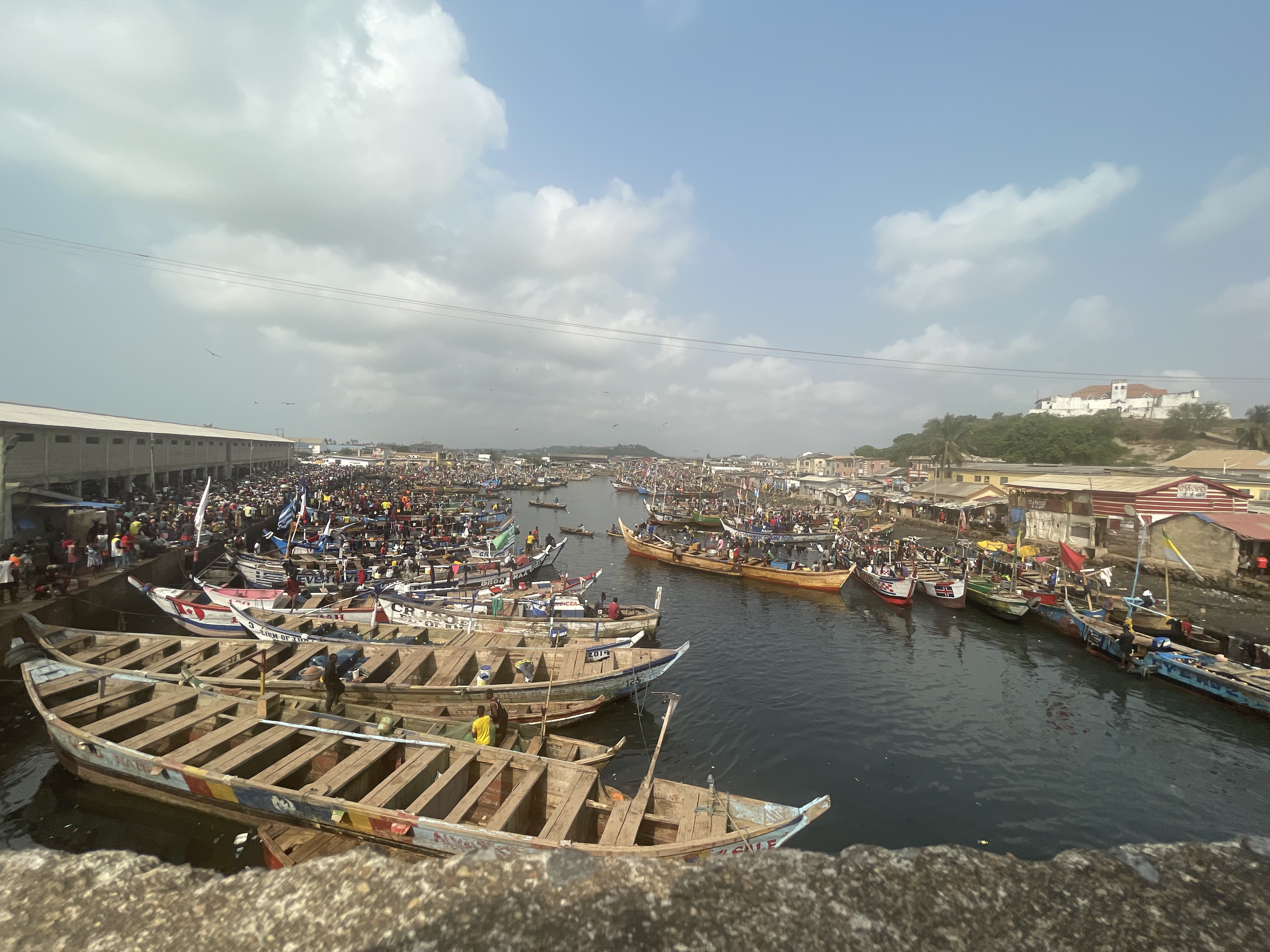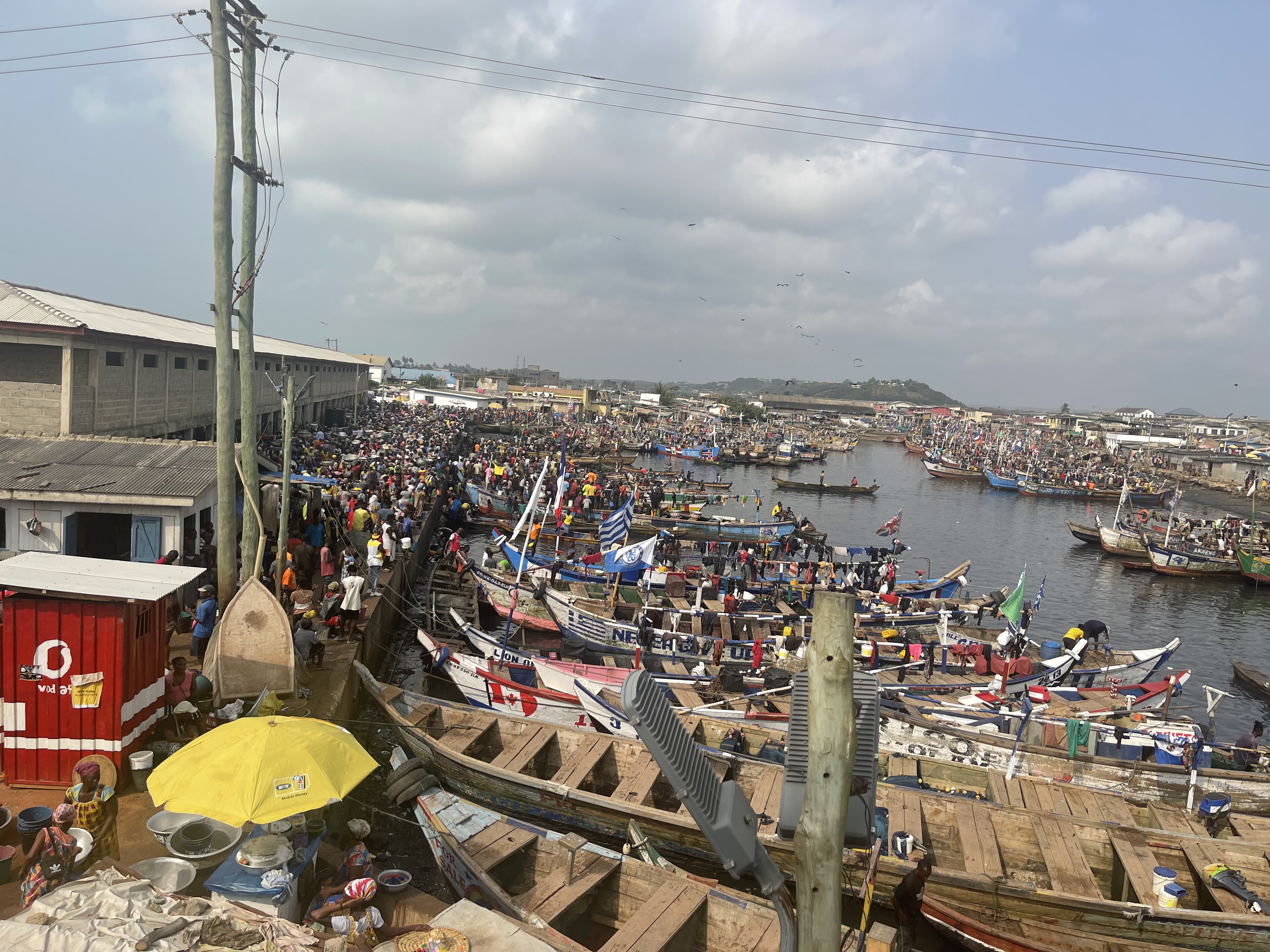Africa Centre of Excellence in Coastal Resilience |  University of Cape Coast
University of Cape Coast
Image

Posted On
Thursday, June 22, 2023 - 11:04
Body
The ocean is filled with numerous resources, ranging from food to energy. As such, countries sharing boundaries with seas boast of a vibrant blue economy. In this light, all these countries together with others not bound by the sea rely on these resources to boost their economies, with one of the most exploited resources being fish.
However, many countries are experiencing a drastic decline in fisheries, and Ghana, which shares a boundary with the Gulf of Guinea is no different, with fishermen reporting reduced fish catch. In finding solutions to mitigate depleted fish stocks, Ghana found the need to adopt the closed fishing season in 2016 based on scientific recommendations, aimed at fish stock recovery. This was indicated as a way of protecting fish stock and increasing fish population with the objectives of curbing overfishing, reducing fishing pressure, restoring overexploited fish stocks, and replenishing dwindling fish populations
The closed season also known as the biological rest period or no harvesting period is when fishing activities are put on pause during the spawning or reproduction period of fish.
During this period the fish spawn (lay their eggs) in the hope that these eggs will mature into fish to replenish the depleted or reduced stock. This is some sort of rejuvenation of the lost population in the case of afforestation in plants.
Now, let us imagine a fish population where all the strong, actively reproducing, and independent groups are all consumed by us, humans, leaving behind a juvenile group incapable of reproducing, which is not strong enough to fend for themselves. This surviving juvenile group also keep dying at the hand of their predators. Gradually, there will be no fish to catch. It is for reasons such as this scenario that governments around the world, including Ghana have constituted closed fishing seasons in their countries.
The 2023 Fishing Closed Season as announced on June 14th, 2023 by The Ministry of Fisheries and Aquaculture Mrs. Mavis Hawa Koomson during the Minister’s Press Briefing, is scheduled to commence and will run from July 1 to August 31, 2023
To ensure sustainable fishing practices, the artisanal and inshore fleets will adhere to the closed season from July 1 to July 31, 2023, with the industrial trawl vessels extending their closure until August 31, 2023.
According to the minister of fisheries, there have been several consultations that have yielded, paving the way for Ghana to have its closed season with Cote d’Ivoire this year, with plans underway to have Togo, Benin, and Liberia on board next year.
Next time you meet a fisherman complaining about this arrangement being a punishment by the government and its officials, we hope you would be able to educate them that it is for their own good so they do not lose their livelihood, and the whole nation doesn’t lose their nutrition.

Last modified
